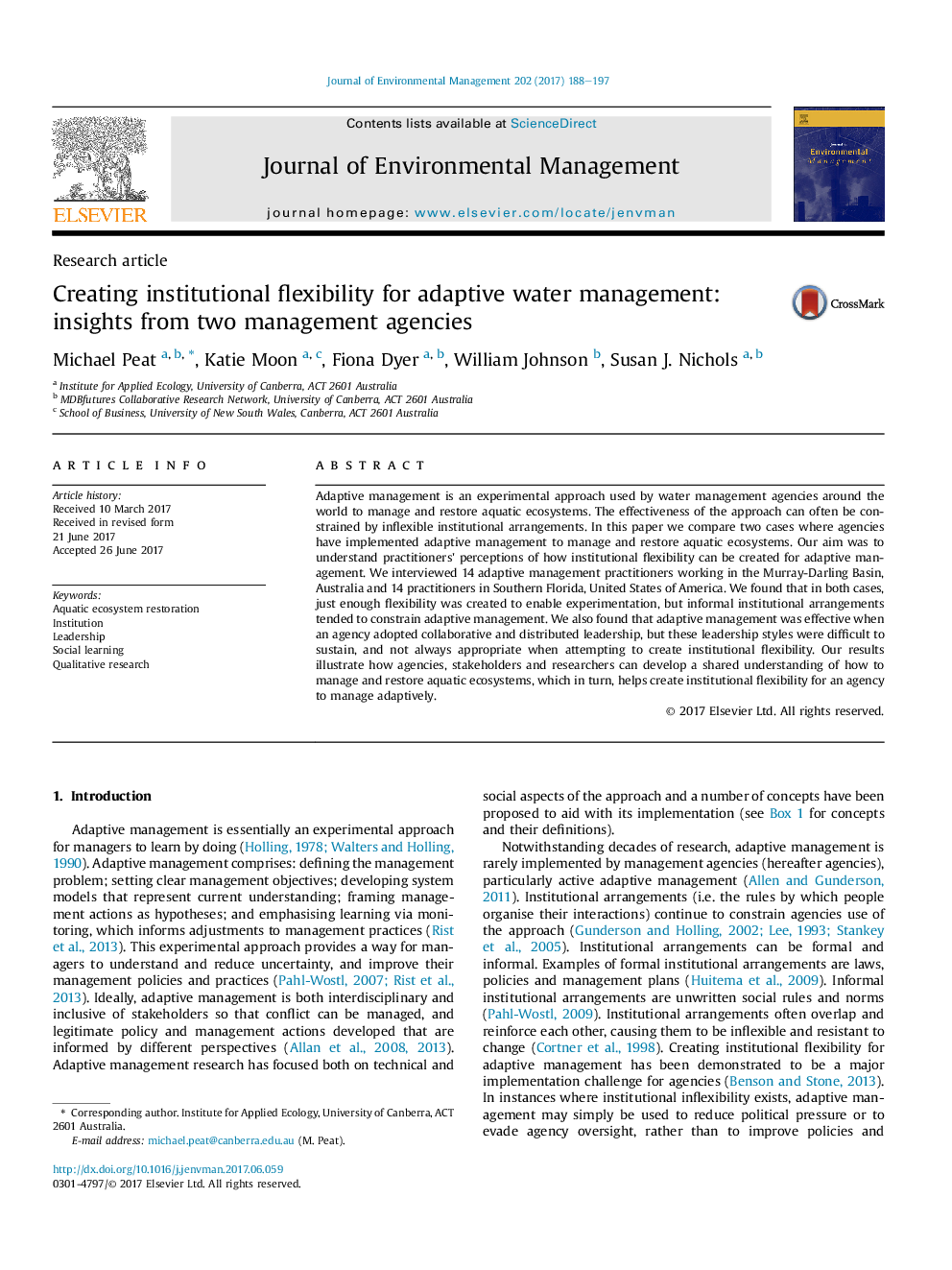| Article ID | Journal | Published Year | Pages | File Type |
|---|---|---|---|---|
| 5116468 | Journal of Environmental Management | 2017 | 10 Pages |
Abstract
Adaptive management is an experimental approach used by water management agencies around the world to manage and restore aquatic ecosystems. The effectiveness of the approach can often be constrained by inflexible institutional arrangements. In this paper we compare two cases where agencies have implemented adaptive management to manage and restore aquatic ecosystems. Our aim was to understand practitioners' perceptions of how institutional flexibility can be created for adaptive management. We interviewed 14 adaptive management practitioners working in the Murray-Darling Basin, Australia and 14 practitioners in Southern Florida, United States of America. We found that in both cases, just enough flexibility was created to enable experimentation, but informal institutional arrangements tended to constrain adaptive management. We also found that adaptive management was effective when an agency adopted collaborative and distributed leadership, but these leadership styles were difficult to sustain, and not always appropriate when attempting to create institutional flexibility. Our results illustrate how agencies, stakeholders and researchers can develop a shared understanding of how to manage and restore aquatic ecosystems, which in turn, helps create institutional flexibility for an agency to manage adaptively.
Related Topics
Physical Sciences and Engineering
Energy
Renewable Energy, Sustainability and the Environment
Authors
Michael Peat, Katie Moon, Fiona Dyer, William Johnson, Susan J. Nichols,
